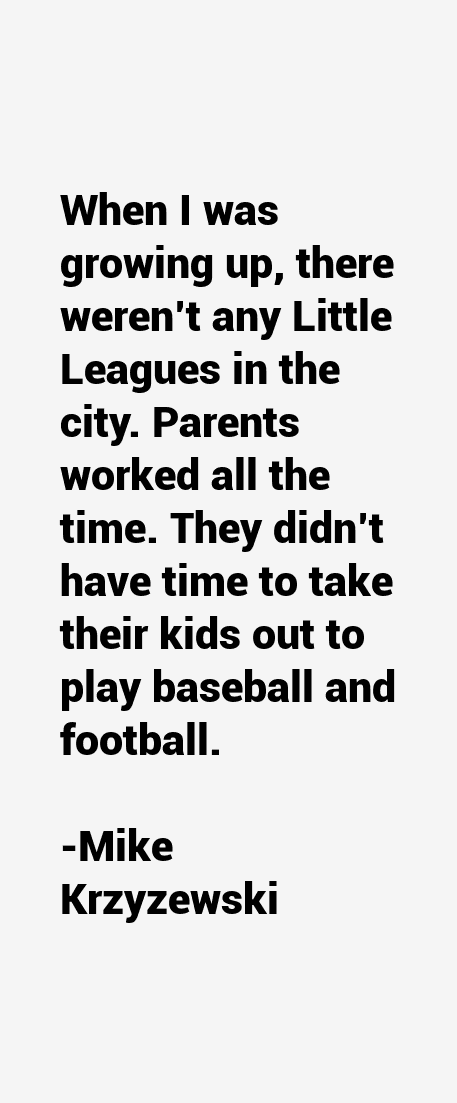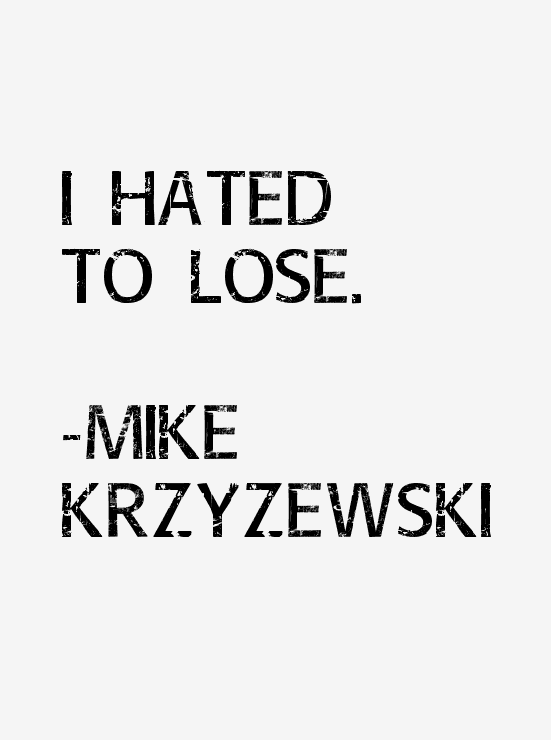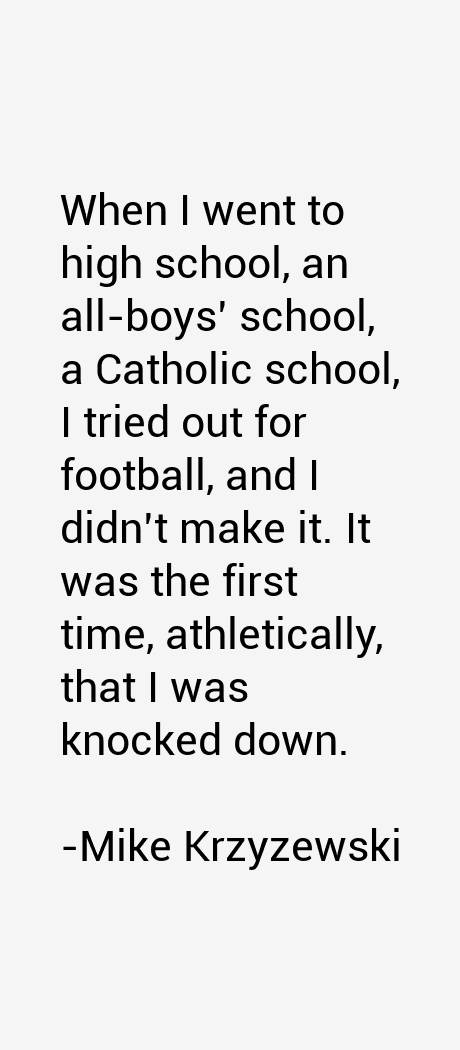Mike Krzyzewski Quotes & Sayings (Page 4)
Mike Krzyzewski quotes and sayings page 4 (78 year old coach). Here's quote # 31 through 40 out of the 46 we have for him.

“When I was growing up, there weren't any Little Leagues in the city. Parents worked all the time. They didn't have time to take their kids out to play baseball and football.”
“Once you win a National Championship, how do you do that again? How do you get the passion to do that again? We won it again right away, the next year. A lot of it had to do with the fact that I didn't give myself an opportunity to enjoy the first one.”

“I hated to lose.”
“That's another thing, we made up games. We didn't have equipment. When it snowed, we would play slow motion tackle football. We would play hockey, but we wouldn't skate. We just made things up. I loved doing that.”

“First of all, what happens is, when you're good at something, you spend a lot of time with it. People identify you with that sport, so it becomes part of your identity.”

“When I went to high school, an all-boys' school, a Catholic school, I tried out for football, and I didn't make it. It was the first time, athletically, that I was knocked down.”
“Playing sport was somewhat frivolous, but I liked it. I rebelled a little bit, and wouldn't go to music lessons and things like that, but I would go and play ball. My parents learned to love it because they saw how much I got out of it.”
“If you win a National Championship, or you win two, people think you have not only seen the Holy Grail, but you've embraced it. Basically, I do what a lot of people do, but I've been able to win.”
“My parents didn't really understand too much about sport. At that time, we were in a Polish community in the inner city of Chicago, and I was the youngest of a bunch of cousins. Polish families are real big, with cousins and aunts and uncles.”
“I've tried to handle winning well, so that maybe we'll win again, but I've also tried to handle failure well. If those serve as good examples for teachers and kids, then I hope that would be a contribution I have made to sport. Not just basketball, but to sport.”
Mike Krzyzewski Quotes Rating
No Ratings Yet
Leave A Comment
























